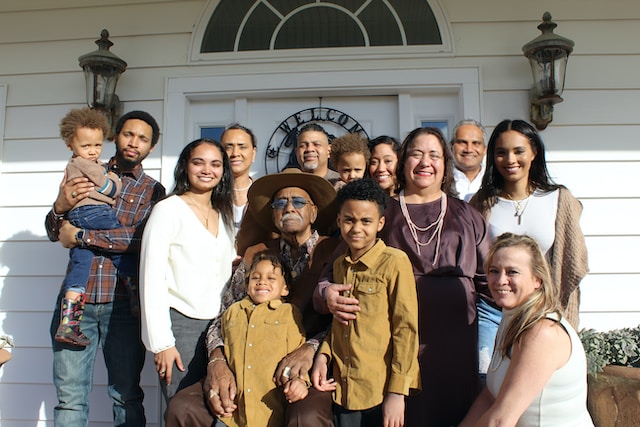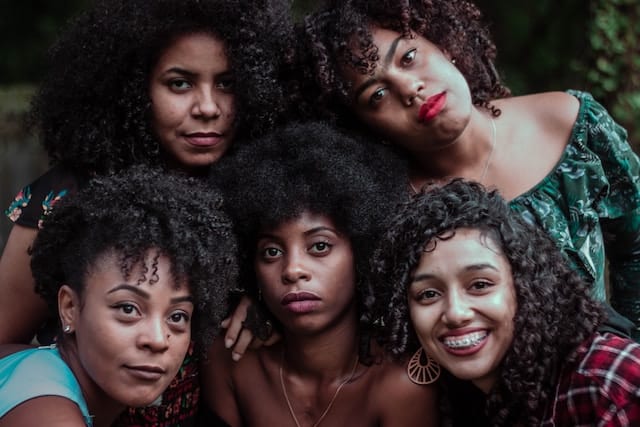Multicultural counseling is a dynamic and inclusive approach to therapy that recognizes and celebrates the rich diversity of human experiences, backgrounds, and cultures. If you’re new to the concept, it’s a doorway to a therapeutic space where your unique identity, values, and cultural context are not only respected but also embraced as integral parts of your healing journey.
Multicultural counseling offers numerous benefits, from providing a safe and nonjudgmental environment to addressing the specific challenges and strengths associated with your cultural background. Whether you’re navigating issues related to race, ethnicity, religion, gender, sexual orientation, or any other cultural aspect, this approach aims to empower you by promoting self-awareness, understanding, and personal growth within the context of your cultural identity. It’s an opportunity to explore the complexities of your experiences, share your perspectives, and find a sense of belonging and acceptance on your path to well-being.
Browse our Therapist Directory
What Is Multicultural Counseling?
Multicultural counseling is an approach to therapy that acknowledges and values diversity in individuals and takes into account the unique experiences, backgrounds, and cultural perspectives of clients. Multicultural counseling aims to create a therapeutic environment that is inclusive, respectful, and supportive of individuals from diverse cultural backgrounds.
Multicultural counseling involves understanding the ways in which culture, race, ethnicity, gender, sexual orientation, age, religion, and other factors can influence an individual’s experiences and perspectives, and how these factors can impact mental health and well-being. Multicultural counselors seek to promote cultural competence, or the ability to understand and respect diverse cultural perspectives, and to incorporate these perspectives into the therapeutic process.
In addition to traditional therapeutic approaches, multicultural counseling may also involve advocacy and activism to address social injustices and to promote greater equality and inclusion for marginalized communities. Overall, multicultural counseling is a client-centered and culturally responsive approach to therapy that aims to promote greater inclusivity, understanding, and respect for diverse cultural perspectives.
What Is a Multicultural Counseling Session Like?
A multicultural counseling session is tailored to the specific needs and cultural background of the client, and may vary depending on the individual’s unique experiences and perspectives. However, there are some general principles and techniques that are commonly used in multicultural counseling sessions. Here are a few examples:
Cultural exploration
Multicultural counseling may involve exploring the client’s cultural background, including their race, ethnicity, religion, gender, sexual orientation, and other factors. The counselor may ask questions to help the client understand how their cultural background has influenced their experiences, beliefs, and values.
Culturally sensitive communication
Multicultural counseling may involve using language and communication styles that are respectful and sensitive to the client’s cultural background. The counselor may be aware of the client’s preferred terms and pronouns, and may use culturally appropriate greetings and expressions.
Culturally responsive interventions
Multicultural counseling may involve using therapeutic interventions that are tailored to the client’s cultural background and experiences. For example, the counselor may use storytelling or other culturally relevant techniques to help the client explore their thoughts and feelings.
Intersectionality
Multicultural counseling may involve exploring how multiple aspects of the client’s identity intersect and interact, and how these intersections may influence their mental health and well-being. For example, the counselor may explore how the client’s experiences as a person of color who identifies as LGBTQ+ may influence their mental health.
Development of cultural competency
Multicultural therapy sessions may involve developing cultural competency, which involves developing an understanding of different cultures and cultural perspectives, and using this understanding to work effectively with clients from diverse backgrounds.
Exploration of cultural differences
Multicultural therapy sessions may involve exploring cultural differences between the client and therapist, and how these differences may impact the therapeutic relationship. The therapist may work with the client to develop strategies for navigating these differences in a way that is respectful and inclusive.
Advocacy and social justice
Multicultural therapy sessions may involve advocacy and social justice work, including addressing systemic barriers and advocating for the rights of marginalized communities. The therapist may help the client develop strategies for advocating for themselves and others, and for promoting greater equity and inclusion in their communities.
Is Multicultural Counseling Only for Addressing Issues of Culture?
No, multicultural counseling is not limited to addressing issues related to culture alone. While culture is a significant component, multicultural counseling takes a holistic approach that considers the multifaceted aspects of a person’s identity and experiences. It recognizes that individuals are shaped by various factors such as race, ethnicity, religion, gender, sexual orientation, socioeconomic background, age, and more.
Therefore, in addition to addressing cultural issues, multicultural counseling can also explore a wide range of other concerns, including mental health challenges like anxiety and depression, relationship issues, trauma, identity development, and personal growth. It provides a comprehensive and culturally sensitive framework for addressing the complexities of each individual’s life, regardless of whether the issues are directly tied to cultural identity or not. This may include:
Depression and Anxiety
Multicultural counseling plays a crucial role in addressing various mental health challenges, including depression and anxiety. By acknowledging the cultural and social factors that may contribute to these conditions, multicultural counseling provides a safe and understanding space for individuals to explore the unique intersections of their identity and mental health.
Therapists can work collaboratively with clients to develop coping strategies that consider cultural influences and promote emotional well-being. Additionally, multicultural counseling helps individuals navigate the stigma often associated with mental health issues in their cultural communities, fostering a sense of belonging and support.
Trauma
When it comes to trauma, multicultural counseling recognizes that experiences of trauma can be shaped by one’s cultural background and the context in which it occurred. This approach allows individuals to process and heal from traumatic events in a culturally sensitive manner. Multicultural counselors are trained to understand how historical and systemic traumas, such as racism or discrimination, can impact mental health. Through culturally relevant interventions, clients can explore their trauma narratives, build resilience, and work towards post-traumatic growth while honoring their cultural identity.
Relationship Challenges
Relationship challenges often stem from differences in cultural backgrounds, beliefs, or communication styles. Multicultural counseling facilitates understanding and communication between partners from diverse cultural backgrounds. It helps couples explore how their respective cultural influences may affect their relationship dynamics. By promoting open dialogue and empathy, multicultural counseling assists couples in developing healthier and more meaningful connections.
Personal Growth
In terms of personal growth and self-actualization, multicultural counseling encourages individuals to embrace their unique cultural identity as a source of strength and resilience. It provides a framework for exploring questions of identity, belonging, and purpose, which can be essential components of the personal growth journey. Clients are empowered to integrate their cultural heritage into their self-concept and life goals, fostering a sense of authenticity and fulfillment.
Life Transitions
For individuals facing life transitions or challenges related to identity, multicultural counseling offers a supportive environment to navigate these complex experiences. Whether it’s adjusting to a new cultural context, exploring gender identity, or dealing with acculturation stress, multicultural counseling helps clients find balance and meaning during life transitions. By validating the significance of culture and identity in these transitions, individuals can navigate change with a sense of purpose and self-acceptance.
Grief and Loss
Multicultural counseling is instrumental in addressing grief and loss, recognizing that the experience of loss is deeply influenced by cultural and societal factors. It acknowledges that different cultures have unique rituals, beliefs, and mourning processes surrounding death. Multicultural counselors provide a culturally sensitive space for individuals to express their grief, honoring their cultural traditions and values. Through this approach, clients can navigate the complexities of bereavement while preserving their cultural identity and seeking support from their cultural community.
Women’s Issues
In the realm of women’s issues, multicultural counseling recognizes that gender intersects with culture, leading to a wide range of experiences and challenges. This approach provides a platform for women from diverse cultural backgrounds to explore issues related to gender roles, empowerment, reproductive health, and more. Multicultural counselors offer a safe and non-judgmental space for women to discuss the unique challenges they face and develop strategies for personal growth and well-being that respect their cultural context.
Work Issues
Multicultural counseling also plays a pivotal role in addressing work-related challenges, particularly in diverse workplaces. It acknowledges that cultural differences can impact one’s experience in professional settings, including issues related to discrimination, identity, and communication. Multicultural counselors support individuals in navigating workplace challenges, advocating for themselves, and finding strategies to thrive professionally. By fostering cultural competence and promoting inclusivity, multicultural counseling contributes to healthier work environments where diversity is valued and leveraged for collective success.
Multicultural Counseling and Other Types of Therapy
Multicultural counseling may involve a range of therapeutic techniques and approaches, including cognitive-behavioral therapy, psychodynamic therapy, and humanistic therapy. Here are some more details:
Multicultural counseling and Cognitive-behavioral therapy (CBT)
Multicultural counseling can be integrated with CBT to help clients identify and challenge negative thoughts and behaviors related to their cultural background. The therapist may work with the client to identify cultural biases and stereotypes, and to develop strategies for addressing these biases in a way that is respectful and inclusive.
Multicultural counseling and Psychodynamic therapy
Multicultural counseling can be integrated with psychodynamic therapy to help clients explore the ways in which their cultural background has influenced their sense of self and their relationships with others. The therapist may work with the client to identify and challenge negative cultural beliefs and to develop a stronger sense of cultural identity and belonging.
Humanistic therapy
Multicultural counseling can be integrated with humanistic therapy to promote greater cultural sensitivity and inclusivity. The therapist may help the client develop a greater sense of self-acceptance and self-worth, and may work with the client to develop a greater sense of empathy and understanding for others from diverse cultural backgrounds.
Mindfulness-based therapy
Multicultural counseling can be integrated with mindfulness-based therapy to help clients develop greater awareness and acceptance of their cultural identity and experiences. The therapist may help the client develop mindfulness practices that are tailored to their cultural background, such as meditation or cultural storytelling.
Narrative therapy
Multicultural counseling can be integrated with narrative therapy to help clients understand and make meaning of their cultural experiences. The therapist may help the client identify and challenge negative cultural narratives, and may work with the client to develop new, more positive cultural narratives.
Solution-focused brief therapy
Multicultural counseling can be integrated with solution-focused brief therapy to help clients identify and build on their cultural strengths and resources. The therapist may help the client identify ways in which their cultural background has contributed to their resilience and coping skills, and may work with the client to develop strategies for leveraging these strengths in their life.
Gestalt therapy
Multicultural counseling can be integrated with gestalt therapy to help clients develop greater awareness and acceptance of their cultural experiences and identity. The therapist may help the client identify and explore the ways in which their cultural identity has shaped their sense of self and their relationships with others, and may work with the client to develop greater self-acceptance and self-compassion.
Family therapy
Multicultural counseling can be used in family therapy to help family members develop greater cultural sensitivity and inclusivity. The therapist may work with the family to identify and challenge negative cultural beliefs and stereotypes, and to develop strategies for promoting greater cultural understanding and respect within the family.
Trauma-focused therapy
Multicultural counseling can be used in trauma-focused therapy to help clients from diverse cultural backgrounds process and heal from experiences of trauma related to their cultural identity. The therapist may work with the client to develop coping strategies that are culturally sensitive and relevant, and may help the client navigate cultural barriers to accessing care and support.
Group therapy
Multicultural counseling can be used in group therapy to help members develop greater cultural sensitivity and understanding. The therapist may help group members identify and challenge cultural biases and stereotypes, and may help them develop strategies for promoting greater cultural understanding and respect within the group.
Next Steps: Ready to Find Multicultural Counseling?
Looking for a therapist skilled in multicultural counseling? You can contact us today for a consultation.
Alternatively, browse our therapist directory to find the therapist who is right for you. You can use the dropdown boxes in the directory to filter for multicultural counseling therapists under the “how we help” category.
Browse our Therapist Directory









